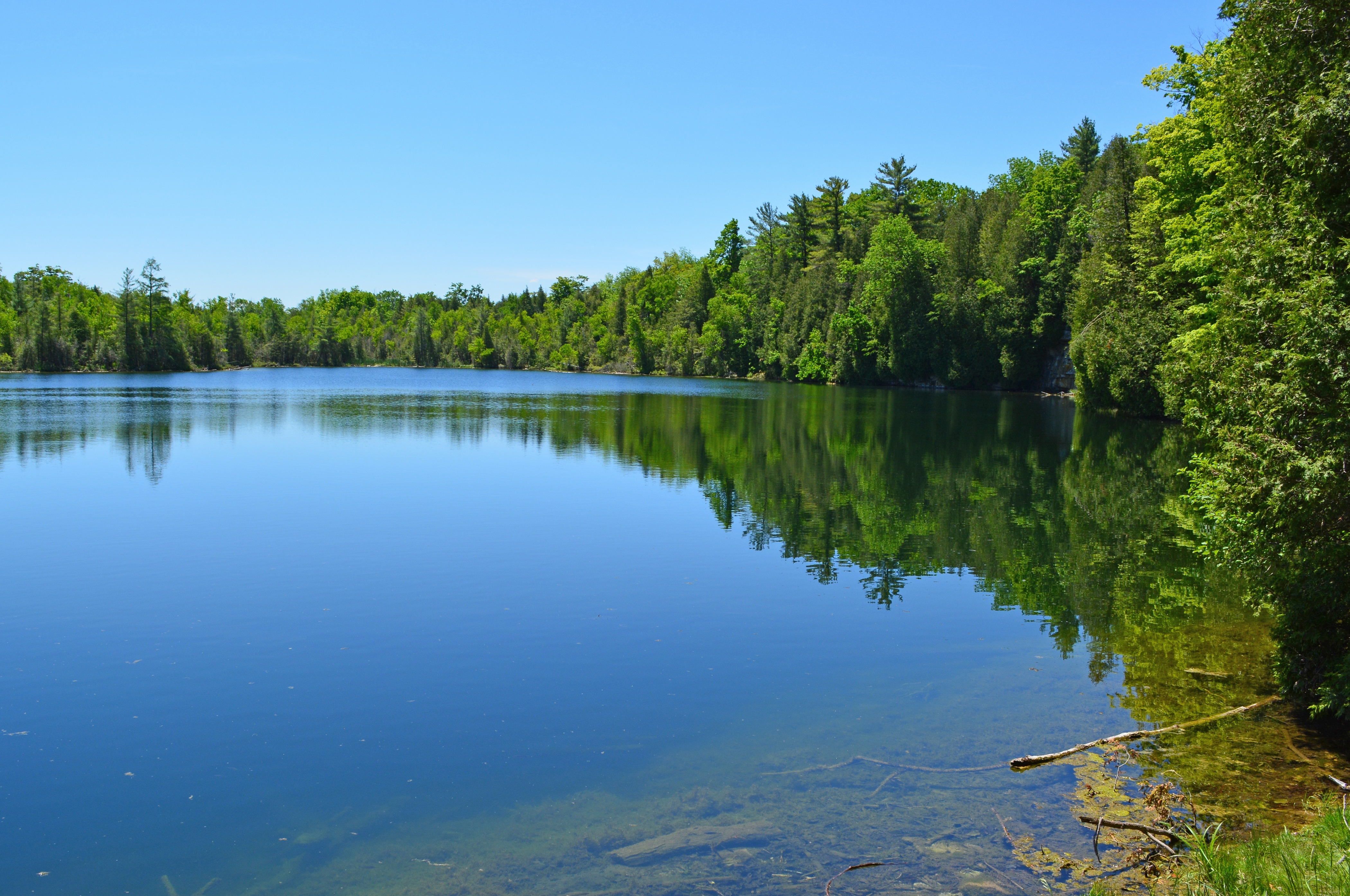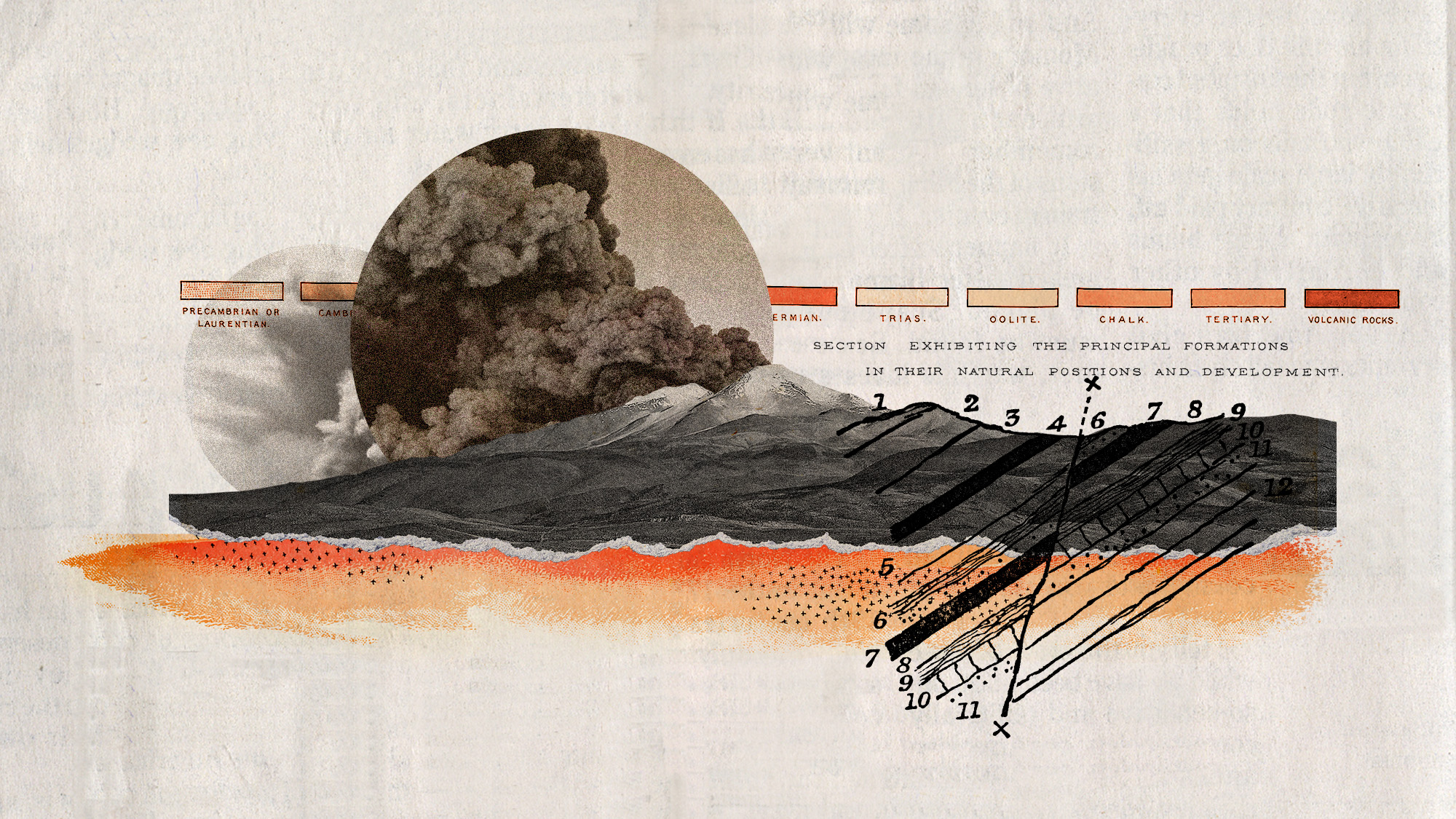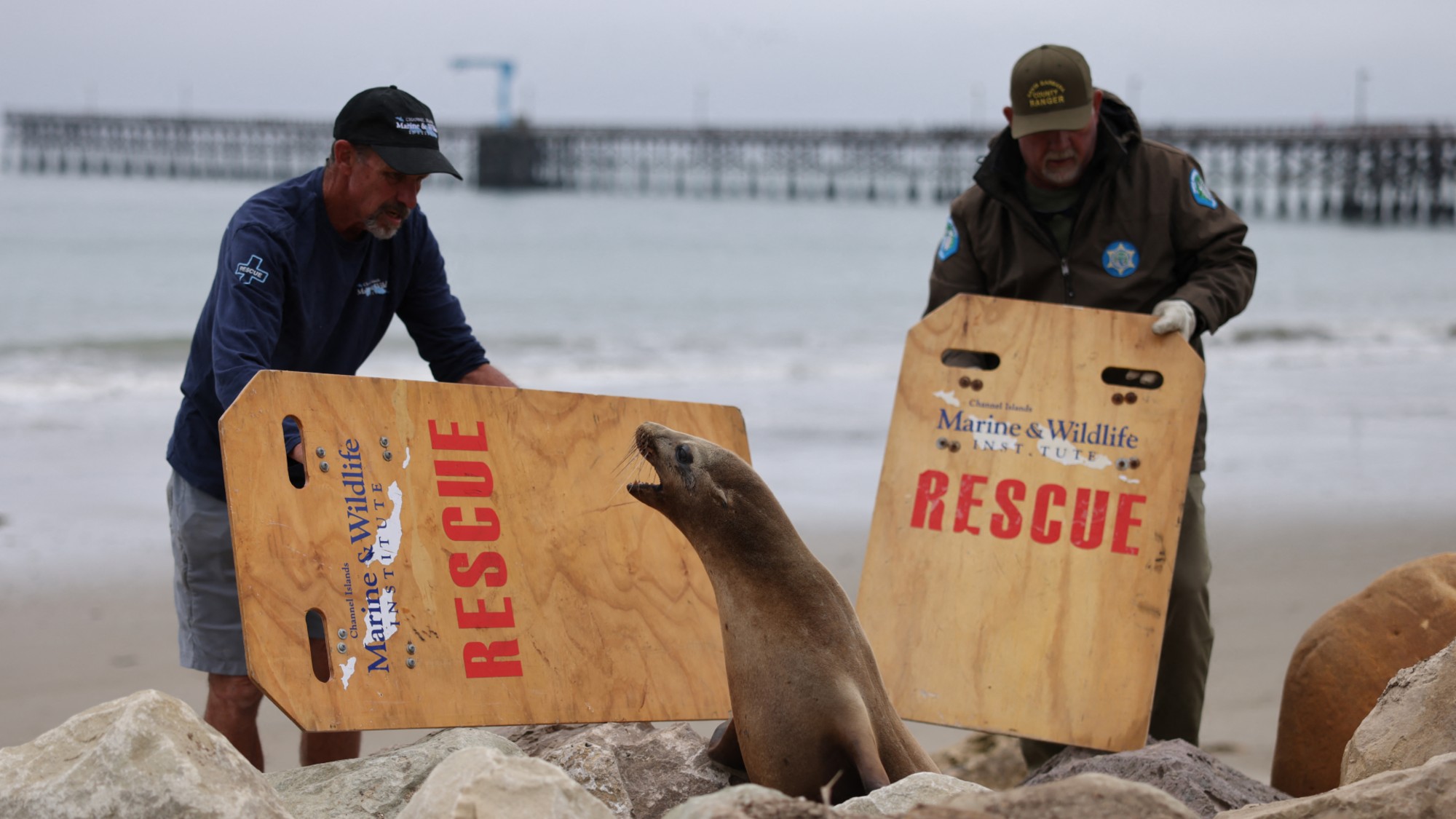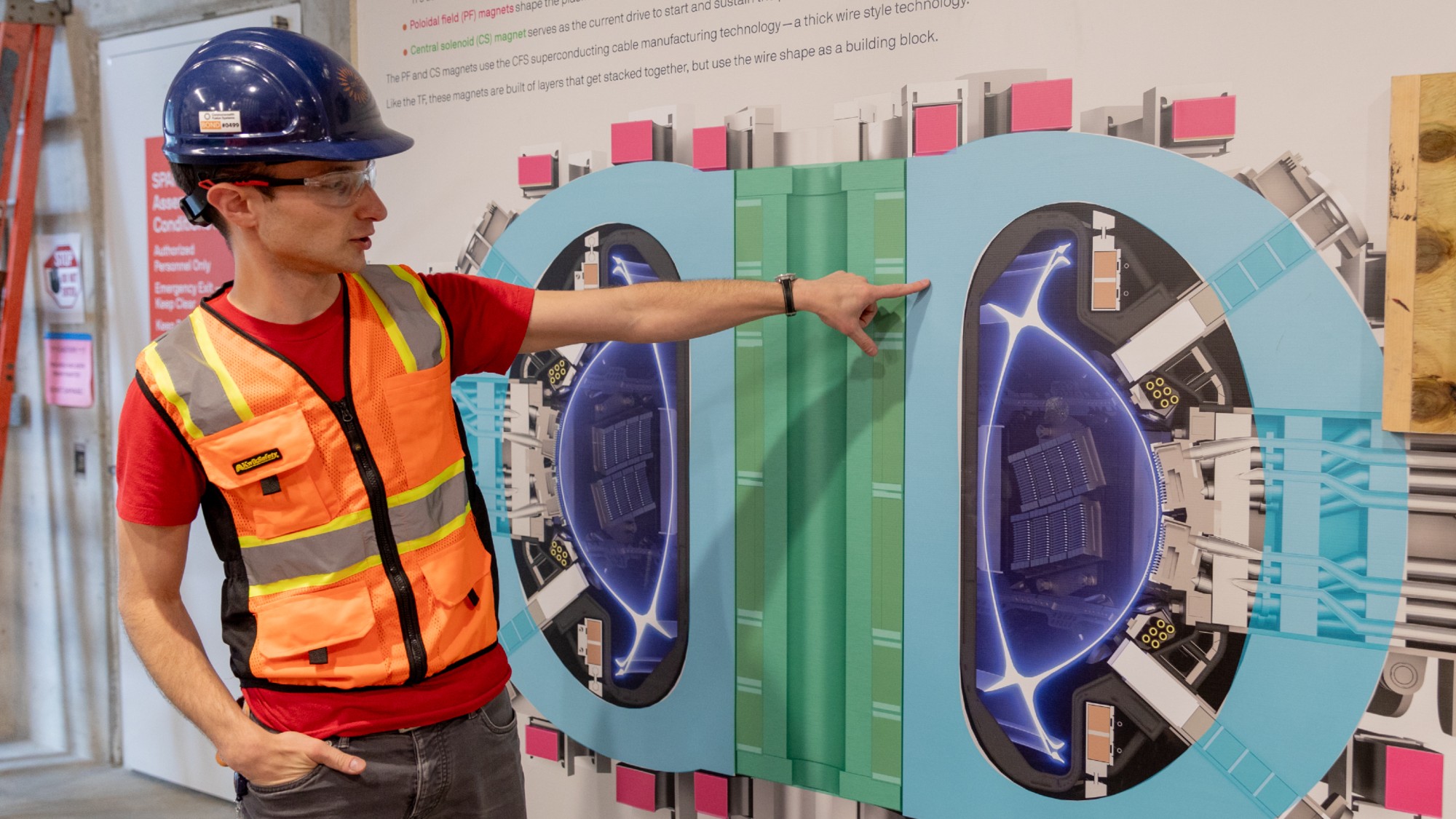Defining the Anthropocene, Earth's new era
The planet may have entered a new epoch


A free daily email with the biggest news stories of the day – and the best features from TheWeek.com
You are now subscribed
Your newsletter sign-up was successful
Scientists have made the case that Earth has entered a new epoch known as the Anthropocene. Unlike previous epochs, dating Earth's 4.6 billion-year history, which came about through natural changes, the Anthropocene is believed to be brought about by human action.
How do we know if we've entered the Anthropocene?
While the term Anthropocene has been widely used for many years now, only geologists can officially denote the start of a new epoch. Specifically, experts look for a "golden spike," which is a "place on the planet where evidence of the start of a global change" is etched in sediment, ice or rock, according to Axios. Each epoch lasts millions of years, making the designation of a new epoch a significant finding.
After researching for 15 years, scientists in the Anthropocene Working Group chose Crawford Lake in Ontario, Canada, as the golden spike for the Anthropocene. The experts concluded that the lake contained the "clearest and most pronounced evidence of humankind's influence on the global rock record," reported The New York Times. While this doesn't officially mark the designation of the Anthropocene, it's a significant step. To make it official, the working group must draft a proposal, and three other committees of geologists must approve it.
The Week
Escape your echo chamber. Get the facts behind the news, plus analysis from multiple perspectives.

Sign up for The Week's Free Newsletters
From our morning news briefing to a weekly Good News Newsletter, get the best of The Week delivered directly to your inbox.
From our morning news briefing to a weekly Good News Newsletter, get the best of The Week delivered directly to your inbox.
Crawford Lake is thousands of years old and so deep that everything that falls into the lake is preserved in layers as a "tree-ring-like record of planetary change," the Times continued. It was "the best place to illustrate" a new epoch, because it shows that "all the different components of the Earth system and the way they interact with one another are fundamentally different than they used to be," Francine McCarthy, an Earth sciences professor at Brock University in Ontario who also led the working group's lake research, told The Washington Post.
What are the characteristics?
If canonized, the Anthropocene epoch comes just under 12,000 years after the previous epoch, the Holocene, indicating that the epochs are switching faster than they did previously. Humans are largely the cause of this. Evidence found in Crawford Lake dates the beginning of the proposed Anthropocene back to the 1950s, when there was a significant increase in the human population and a "sudden spike in radioactive plutonium from nuclear weapons testing found in the sediment," the Post stated. Other indicators include nitrogen and mercury released from burning fossil fuels, microplastic pollution and nitrogen from fertilizers, per Axios.
"It's not rocket science to see that the planet has been operating under different rules than before," McCarthy said to Science, indicating that human influence has greatly altered the planet. Previously geologic eras lasted for millennia, and changes came due to "natural fluctuations in temperature on the planet or glacial ice ages and mini ice ages, or even asteroid strikes," according to Axios Managing Editor Alison Snyder. "The changes that they're seeing in the past 70 years are occurring much faster than they've seen in other geological periods."
What comes next?
The process of moving forward with designation will likely continue in the fall, but there's no guarantee that geologists will vote in favor. Not everyone is convinced that this evidence is enough to warrant designating a whole new epoch. "I'm not sure if something that is ephemeral as a couple of decades can count as a new geological age," remarked archaeologist Sturt Manning to the Post. "You can't really define your own time."
A free daily email with the biggest news stories of the day – and the best features from TheWeek.com
There are also concerns about the "potential political ramifications" of designating the Anthropocene, according to Stanford University anthropologist Andrew Bauer to the Post. It may "trivialize human impacts" on Earth before the 1950s or imply "all people are equally responsible for the transformation of the planet" when the main cause is wealthy people and governments.
However, "When it's 8 billion people all having an impact on the planet, there's bound to be a repercussion," remarked Colin Waters, an honorary professor at the University of Leicester in the U.K. and the chair of the Anthropocene Working Group, to CNN. "We've moved into this new Earth state, and that should be defined by a new geological epoch."
Devika Rao has worked as a staff writer at The Week since 2022, covering science, the environment, climate and business. She previously worked as a policy associate for a nonprofit organization advocating for environmental action from a business perspective.
-
 The ‘ravenous’ demand for Cornish minerals
The ‘ravenous’ demand for Cornish mineralsUnder the Radar Growing need for critical minerals to power tech has intensified ‘appetite’ for lithium, which could be a ‘huge boon’ for local economy
-
 Why are election experts taking Trump’s midterm threats seriously?
Why are election experts taking Trump’s midterm threats seriously?IN THE SPOTLIGHT As the president muses about polling place deployments and a centralized electoral system aimed at one-party control, lawmakers are taking this administration at its word
-
 ‘Restaurateurs have become millionaires’
‘Restaurateurs have become millionaires’Instant Opinion Opinion, comment and editorials of the day
-
 Canyons under the Antarctic have deep impacts
Canyons under the Antarctic have deep impactsUnder the radar Submarine canyons could be affecting the climate more than previously thought
-
 What would happen to Earth if humans went extinct?
What would happen to Earth if humans went extinct?The Explainer Human extinction could potentially give rise to new species and climates
-
 A zombie volcano is coming back to life, but there is no need to worry just yet
A zombie volcano is coming back to life, but there is no need to worry just yetUnder the radar Uturuncu's seismic activity is the result of a hydrothermal system
-
 'Bioelectric bacteria on steroids' could aid in pollutant cleanup and energy renewal
'Bioelectric bacteria on steroids' could aid in pollutant cleanup and energy renewalUnder the radar The new species is sparking hope for environmental efforts
-
 Earth's oceans were once green and could one day turn purple
Earth's oceans were once green and could one day turn purpleUnder the radar The current blue may be temporary
-
 Toxic algae could be causing sea lions to attack
Toxic algae could be causing sea lions to attackIn the Spotlight A particular algae is known to make animals more aggressive
-
 Cautious optimism surrounds plans for the world's first nuclear fusion power plant
Cautious optimism surrounds plans for the world's first nuclear fusion power plantTalking Point Some in the industry feel that the plant will face many challenges
-
 US won its war on 'murder hornets,' officials say
US won its war on 'murder hornets,' officials saySpeed Read The announcement comes five years after the hornets were first spotted in the US
